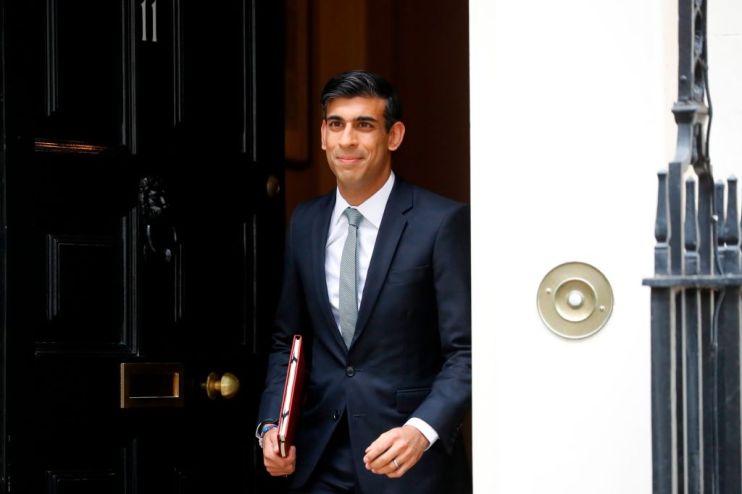Rishi Sunak says he will deal with debt levels once picture clears

Chancellor Rishi Sunak has said he will seek to reduce the huge budget deficit amassed during the coronavirus pandemic once the trajectory of the economy is “clearer”.
Sunak, who yesterday pledged another £30bn worth of stimulus to fight the downturn, said it was difficult to strike the right balance between protecting the economy and the public finances.
Experts estimate that the government budget deficit – the gap between income and spending – could surge to £350bn this year. That would be by far the highest level since World War II.
The normally fiscally cautious Conservative party has borrowed record amounts and spent close to £190bn so far on tackling the coronavirus crash.
“We can’t sustainably live like this, of course we can’t, and over the medium term we can and we will return our public finances to a sustainable position,” Sunak told the BBC.
He said that it is “difficult now to get exactly the right trajectory on that, because we have an uncertain path ahead”.
“But as soon as we have a clearer path… we can look at the situation and make sure that our public finances are back on a sustainable footing over a reasonable period of time.”
Sunak’s BBC interview came the day after he launched a “plan for jobs” that will give firms £1,000 for each employee they take back off the furlough scheme.
He also slashed VAT for the hospitality sector and announced a “holiday” on the property tax known as stamp duty.
The Institute for Fiscal Studies (IFS) think tank yesterday said that it was “unlikely” the UK economy would fully recover from coronavirus. It said that high levels of debt therefore meant future statements from the chancellor “are likely to involve a less pleasant set of announcements”.
Yet it pointed out that the government is currently borrowing at record-low interest rates. This is thanks to the Bank of England flooding the bond market with cash to keep borrowing costs low.
IFS deputy director Carl Emmerson cautioned against cutting spending too early. He said tough decisions on the debt “ can – and should – be left for another year”.